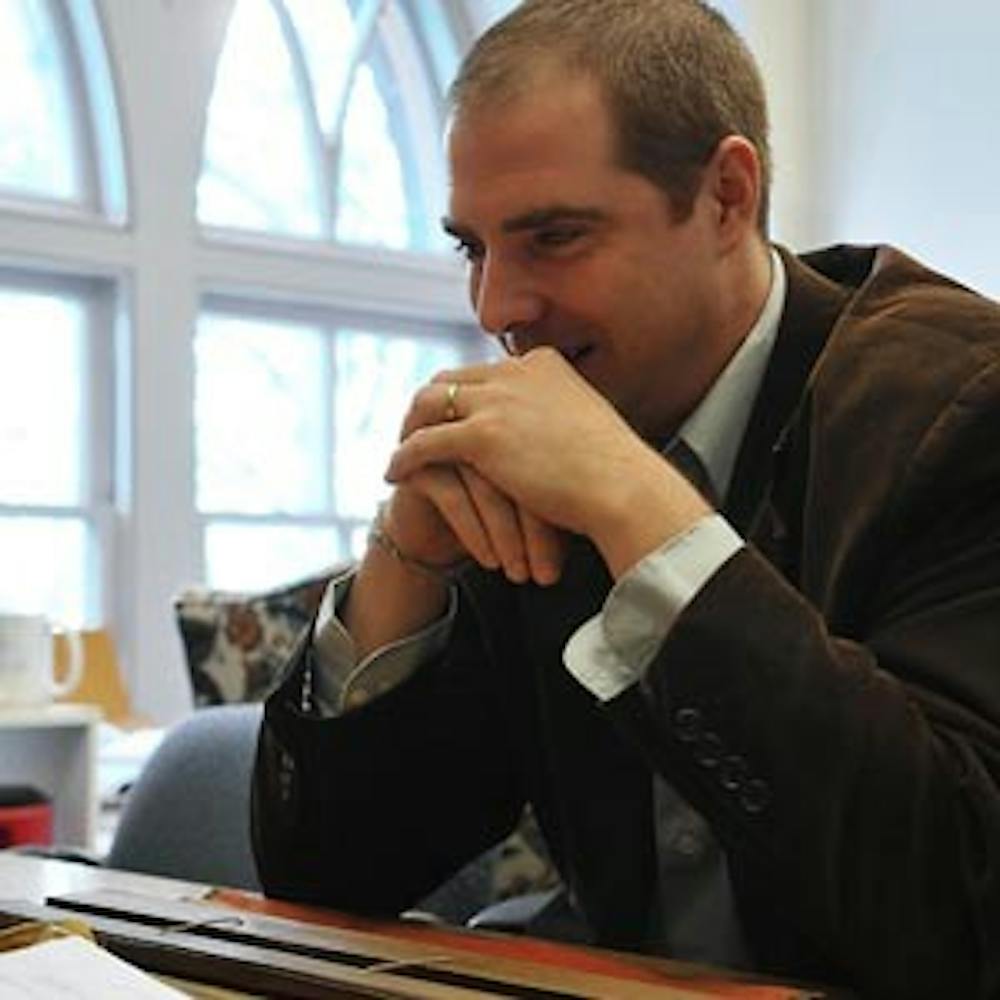What differentiates Justin McDaniel from other Penn professors isn’t his Ph.D. in Sanskrit and Indian Studies or his extensive experience living in the countries he teaches about. However, it might be his experience as a Buddhist monk in Thailand.
The newly hired undergraduate chairman of Religious Studies comes to Penn from the University of California, Riverside. A self-proclaimed “textual anthropologist,” he is an authority on South Asian religion and history, with an emphasis on Buddhism.
After completing his undergraduate studies at Boston College, McDaniel worked in Boston teaching Cambodian refugees before volunteering in Thailand. At this point in his life, McDaniel said, he was not particularly interested in religion. In fact, he explained that he “felt bad for not having a plan,” and went to Thailand to “see what happened.”
Over the next three years, he went to Thailand, Laos, India, Nepal, China, Singapore, Russia, Japan and Cambodia for either research or tourism. During this time, he ordained for a few months as a Buddhist monk in Thailand, which he explained is regular practice for Thai men. For these few months, his robes and bowl were his sole possessions.
His monastery was on an island in the middle of a river in rural Thailand, McDaniel explained. It was particularly orthodox, he noted, and only allowed the monks to eat one meal a day. Along with his fellow monks, McDaniel had to paddle ashore in a canoe and go on alms rounds to procure food. His daily schedule also included chanting, cleaning, dying his own robes and meditating.
“Life in a monastery was both the easiest life and the most difficult,” said McDaniel. “Issues dealing with identity became less and less important, because I lost my identity in a sense,” he continued, explaining that monks are not allowed to keep their original names.
But he added that despite the loneliness, he gained a lot from the experience. In particular, it led him to want to study monks’ lives, and taught him lessons about teaching.
Most importantly, it taught him how to relate to each student as an individual, he said. “Everybody is going to interpret what I teach in his or her own way. I have to meet them where they are.”
His went on to say that his experiences, as well as his father’s influence, instilled in him the desire to convey to his students a sense of urgency, to “let them know that what you’re teaching is important, that they have a rare opportunity in life when they are told to read and learn, and that they’re not going to have a lot of these opportunities [again].”
A major theme of his courses, he said, is learning from other people, not about them. McDaniel said he wants to show his students that “these things matter to real people in real places — that they are matters of life and death.”
McDaniel’s students agree that his personal experiences complement his teaching.
“I feel like he has special authority to speak on multiple traditions because of his extensive experience going to and visiting all these different places and cultures,” said College sophomore Jennifer Werkmeister.
Wharton junior Ayesha Samant agreed. “He tells us a lot about people he has met. ... He brings his own life into class.”
In light of his experiences, McDaniel said he is “a student of Buddhism, who just happens to be paid to teach it.”



